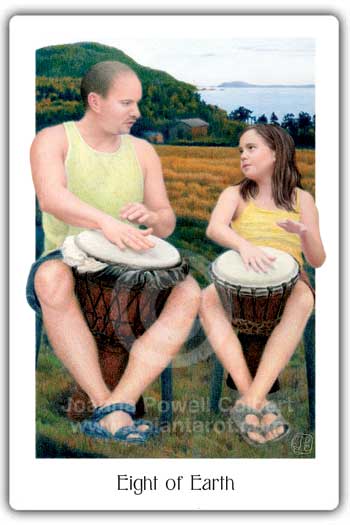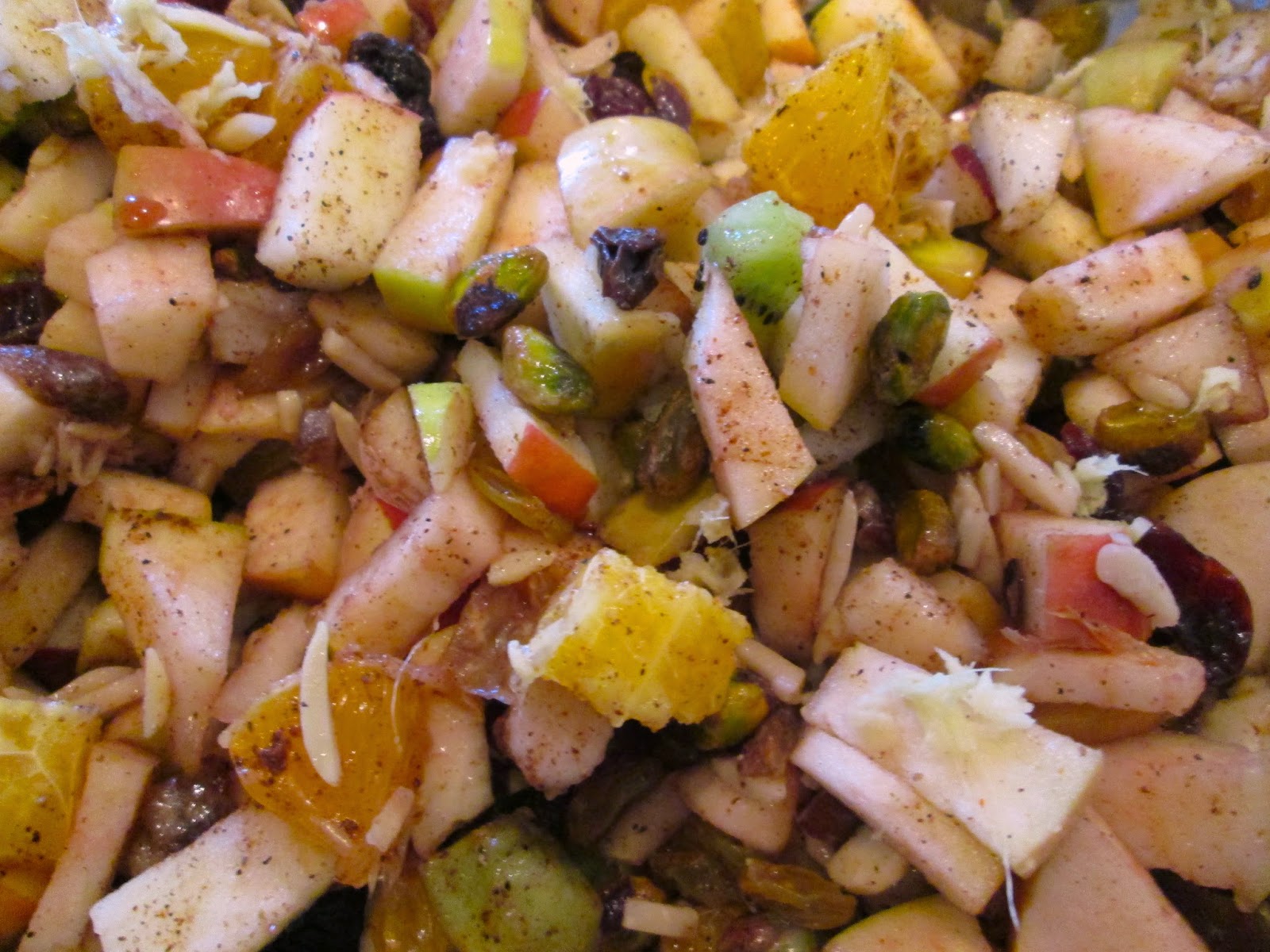On her blog,
Art of Change, Carolyn Cushing recently offered this question for contemplation: What is the dark offering me in this season of long nights?
…an opportunity to learn from the holidays...
8 of Earth – celebrating outdoors before newly harvested fields. Celebrate as winter approaches, accepting every season as a gift.
After the High Holy Days, came Sukkot, Shemini Atzeret, and Simchat Torah, nine days of celebration and tradition.
During Sukkot, one of the three pilgrimage festivals, many Jews celebrate outdoors, living in temporary shelters representing the structures that the Israelites made during the harvest moon so they could remain near the fields at night; these sukkahs also represent the temporary shelters in which they lived during forty years of wandering in the wilderness.
Shemini Atzeret is an extra day of festival and seems to have neither agricultural nor historical significance. When describing this holiday, some say that god is like a host asks his guests to… (what's that melody?) stay… just a little bit longer. It is an extra day of togetherness.
Simchat Torah "rejoicing in the Torah." We finish reading
D’varim (“These are the words” or Deuteronomy) and begin again at
B’reishit (“In the beginning” or Genesis) and begin again. Jill Hammer calls Simchat Torah the Solstice of the Torah because the cycle of readings continues.
These holidays represent celebration of the season's harvest, the passing down of tradition, and a pause to reflect between summer and winter.
Death – the sparkling light on the water draws our attention from the decaying boat to a place of new hope. Be eager to change.
Shortly after Simchat Torah, we observe the yahrtzeit of Rachel, the anniversary of her death. Later, near the winter solstice, we observe Chanukah.
The Matriarch, Rachel, died giving birth to her second child whom she named Ben Oni, “son of my sorrow.” Her husband, Jacob, sadly buried her by the side of the road. The image of Rachel, crying for her lost children is powerful. Her tears moved god to bring us home.
The Festival of Lights remember the re-dedication of the Temple and encourages us to rededicate ourselves. The Temple was captured and desecrated, but then regained and renewed. Perhaps the seven-branch menorah becomes a nine-branch chanukiah during this holiday because light may sometimes grow brighter after destruction.
These holidays teach us to hold on to hope. Rabbi Alan Berg, currently of Beit Chaverim in
Oregon, spoke of breaking a glass at Jewish weddings, "If in the moment of your greatest joy, you can remember your greatest sorrow, then in times of sorrow, you will remember joy."
 10 of Fire – combines the imagery of life and destruction. You never know what is next.
10 of Fire – combines the imagery of life and destruction. You never know what is next.
Everyone knows there’s spring after winter and light after darkness, but we should not to be blind to the destructive forces that come again and again. The fire represents the Tenth of Tevet, destruction. The trees represent Tu B’Shevat, renewal in spring. The smoke represents Purim.
Purim, observed very near the beginning of spring, is a dark, dark holiday on which god is hidden from us and only chance preserves us. The cycle of the year is not simple or clear. Destruction can come at any time and it may only be chance that averts it.
And yet... it will still be springtime.
Be sure to see Carolyn's blog, here.































